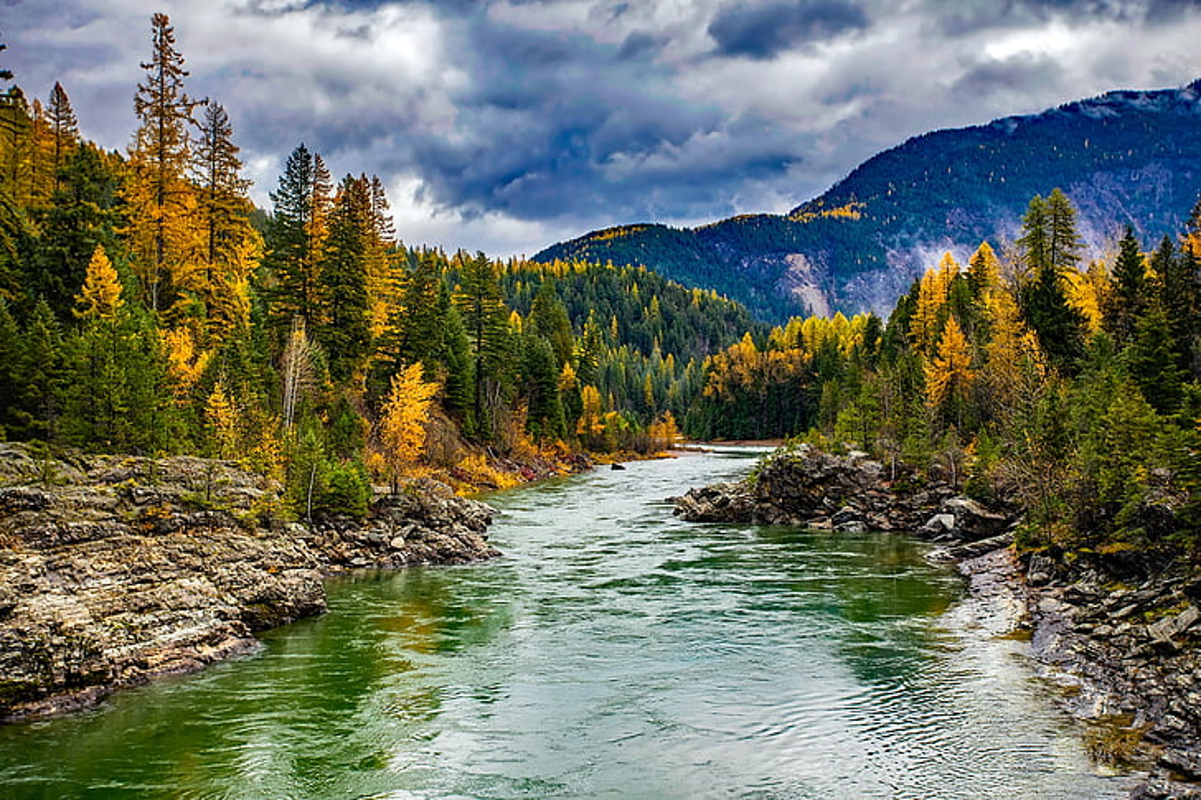
Mexican drug cartels are targeting America’s ‘last best place’
Ricardo Ramos Medina was an ex Mexican cop working for the Sinaloa Cartel. On March 17, 2020, he left his flop on Tijuana, walked across the border to the U.S, rented a Jeep Compass at San Diego International Airport, and picked up a bag of meth from a drug mule. Then he made his way to Butte, Montana, near the center of the Last Best Place.
It was a 16 hour drive.
Well, it would’ve been a 16 hour drive had he not gotten stopped by state and federal officers. And had said officers not found about 2 pounds of pure methamphetamine — enough to knock the town of Butte on its proverbial butts.
According to NBC News, the arrest helped bring down a drug trafficking ring that federal prosecutors said brought at least 2,000 pounds of meth and 700,000 fentanyl-laced pills into Montana from Mexico over three years.
Why Montana
“Why Montana?” said Chad Anderberg, a Montana Division of Criminal Investigation agent who was one of the lead investigators on the case. “It boiled down to money. Medina could make so much more profit from drugs he sold here than in any other place.”
Yep, the Cartel have been saturating the far corners of the country because fentanyl can be sold for 10-20 times the urban price. In fact, a counterfeit fentanyl pill that can be made for less than 25 cents in Mexico sells for $3 to $5 in cities like Seattle and Denver where drug markets are more established, but up to $100 in remote parts of Montana. That’s especially so on Indian Reservations where addiction rates are high and law enforcement numbers are low.
“Right now it’s as if fentanyl is raining on our reservation,” said Marvin Weatherwax, Jr., who serves on the Blackfeet Tribal Business Council and represents the 15th district in the Montana House of Representatives.
Amid the storm of fentanyl, the locals don’t even have an umbrella.The Northern Cheyenne tribe relies on two federally funded Bureau of Indian Affairs tribal police officers per shift to patrol more than 440,000 acres of land home to roughly 6,000 residents, according to the tribal council. The adjacent Crow Reservation, the largest in the state, has four to six police officers per shift to patrol a swath of land the size of Rhode Island, according to Quincy Dabney, the mayor of Lodge Grass, a town on the reservation.
Complicating matters further, the reservations are sovereign nations where local law enforcement is restricted from operating without an agreement with the tribe. Even when agreements are in place, local and state authorities are often barred from arresting tribal members. And the tribal police officers are largely prohibited from arresting outsiders on the reservation.
“We are fighting this problem standing on one leg, and half the time we’re handcuffed,” recently retired DEA Agent Stacy Zinn said.
The Origin of the Last Best Place
Montana is more and more referred to as “the last best place” in America. Not only is it picturesque, but it’s relatively sparsely populated. With its 1.2 million people spread out across 150,000 square miles of vivid terrain.
The phrase “the last best place” was first used by biologist Douglas Chadwick in his mountain goat saga A Beast the Color of Winter (1993, Sierra Club Books), but it was initially made popular in an Anthology assembled by William Kittredge and Annick Smith. Kittredge was then a professor of creative writing at the University of Montana, and he held a book-naming brainstorming session at a resort near Yellowstone park. “I was thinking of the book The Last Good Kiss by James Crumley, and Lincoln’s statement that the U.S. was the last best hope of mankind,” Mr. Kittredge said. “The phrase popped into my head and I said, ‘How about The Last Best Place?'”
Anyone inspired by Northern Noir kingpin Crumley deserves our vote of confidence (The Last Good Kiss has always been our all-time favorite title); anyone who’d pair Lincoln with the roustabout writer also deserves our trust. We should echo the applause for Governor Brian Schweitzer and Senators Max Baucus and Conrad Burns for drafting legislation that kept Vegas carpetbagger David E. Lipson from trademarking the name for a greedy fistful of properties, including a ranch. As you might suspect, Lipson’s move wasn’t at all welcomed around the state. Perhaps that’s because the phrase belongs to Montanans. Period.
Indeed, Montana is the last best place, and Montanans deserve to hold that distinction in their own hearts — all Montanans.
The Last Best Place also needs to be protected from scourges like the Cartels. Please Congressfolk, find it in your hearts to bankroll some real law enforcement for the reservations. While you’re at it, some addiction treatment would be nice as well.
Whaddya say?
Image: PickPik